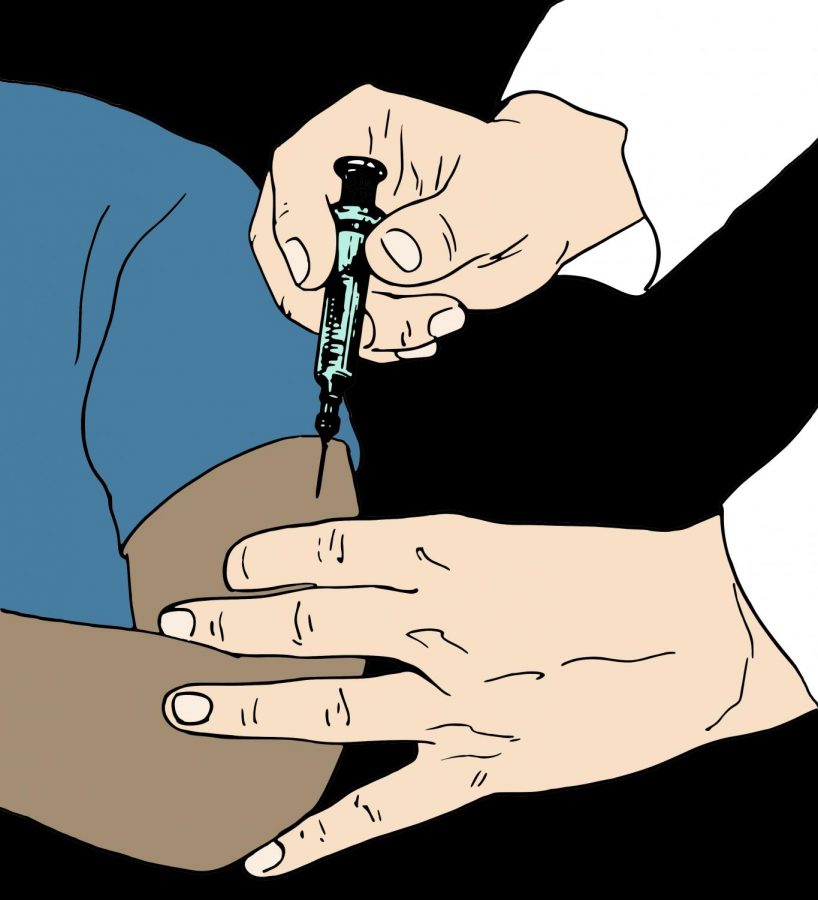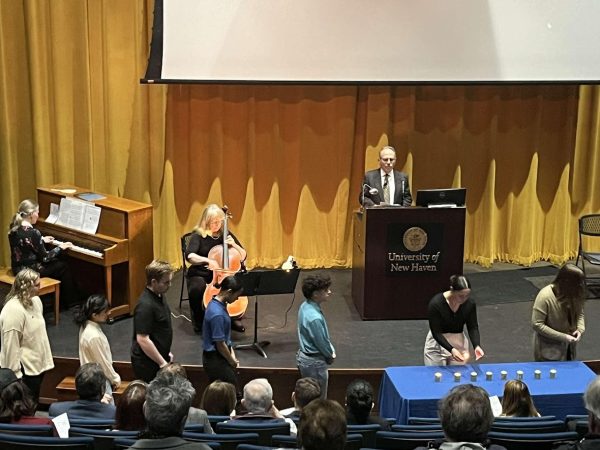Health Services Aims to Beat Flu This Season
As the flu reaches its peak season, it is even more important to get vaccinated.
On Friday, Dec. 8, university health services hosted a flu shot clinic to keep students and faculty healthy through the remainder of the flu season. Paula Cappuccia, director of health services, explained that it’s important for the school to build up a “herd immunity” in order to combat the flu.
“I think many students still believe that the flu vaccine is only for those who are older or elderly. If they get it it will not be so bad since they’re younger, as well as other excuses not to get the vaccine,” said Cappuccia. “Just ask anyone who has ever had the flu what it’s like. Most will respond it is the sickest I have ever been and I never want to get the flu again. It really puts you out of commission.”
On the Center for Disease Control’s (CDC) website, an interactive map shows the progression of the flu virus over the past season. As of Dec. 1, most states are experiencing minimal to low cases of the flu, and a couple of southern and western states were experiencing moderate to high cases.
Cappuccia said that peak flu season at the university is typically in the early months of the new year.
“Over the past few years here at the university, the flu has ‘hit the campus’ about the second week of February,” she said. “Once student have to campus from winter break.”
The CDC’s website has another page detailing how many does of the influenza vaccine are distributed by year. Between 2017 and 2018, approximately 160,000,000 doses of the vaccine were distributed across the country. This is the highest number of distributions since 2010.
However, in an unofficial Twitter poll conducted by The Charger Bulletin, 80 percent of respondents stated that they did not consistently get the flu shot on a yearly basis.
“Some misconceptions that people have are if they get the vaccine they are going to get the flu,” said Cappuccia. “Not so. The vaccine is an inactive, not live, vaccine. You cannot become ill from it. It lets your body make immunity to protect against the flu.”
Cappuccia wants the main takeaway of the event to be that everyone should get vaccinated. Not only for their own health, but the health of everyone around them.
“If you cannot make the clinic we are sponsoring, go to your private doctor, got to a local pharmacy or urgent care center,” said Cappuccia. “Most insurances cover the cost of the vaccine.”
If students have any questions, they are urged to contact university health services in order to speak to a health professional.

Everett Bishop is a senior at the University of New Haven and is student life editor for The Charger Bulletin. He is double majoring in communications...










